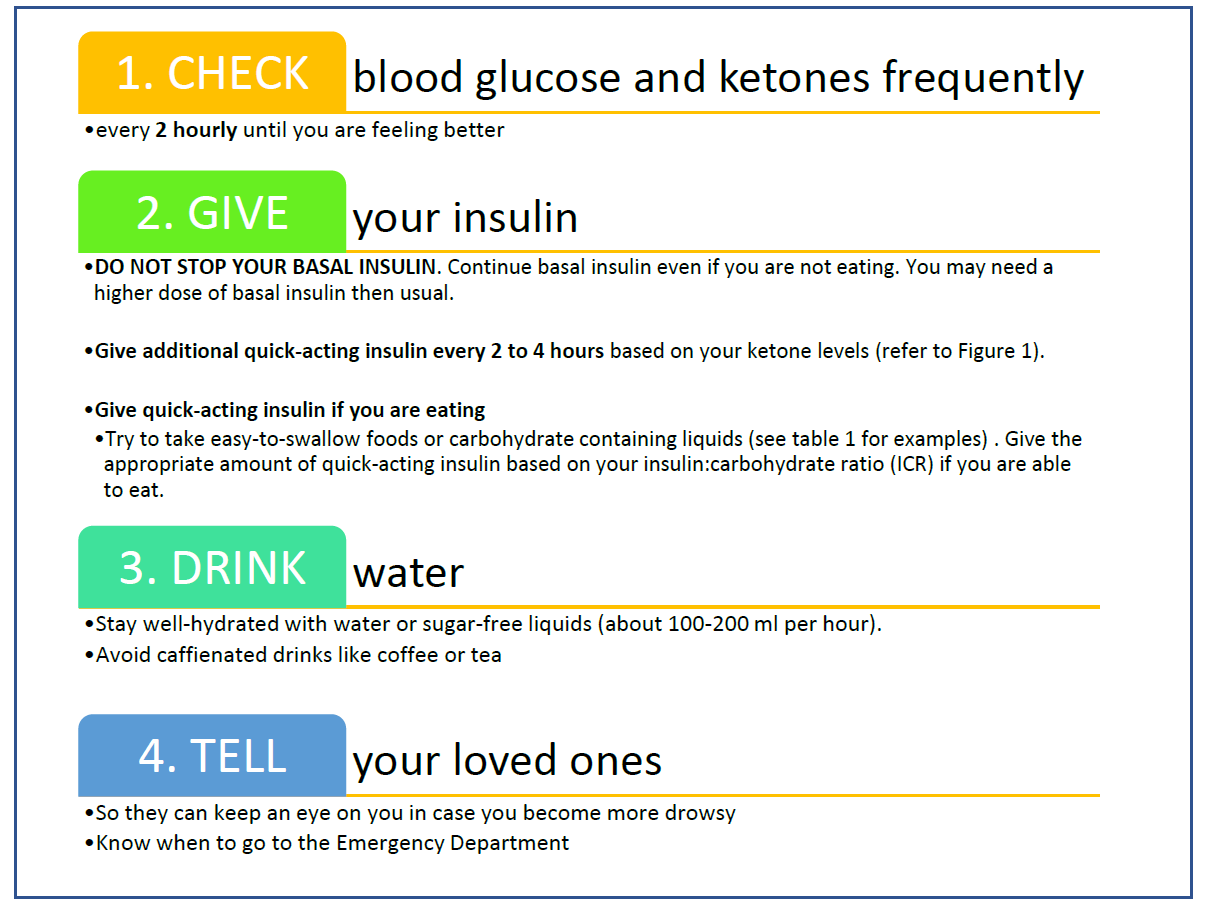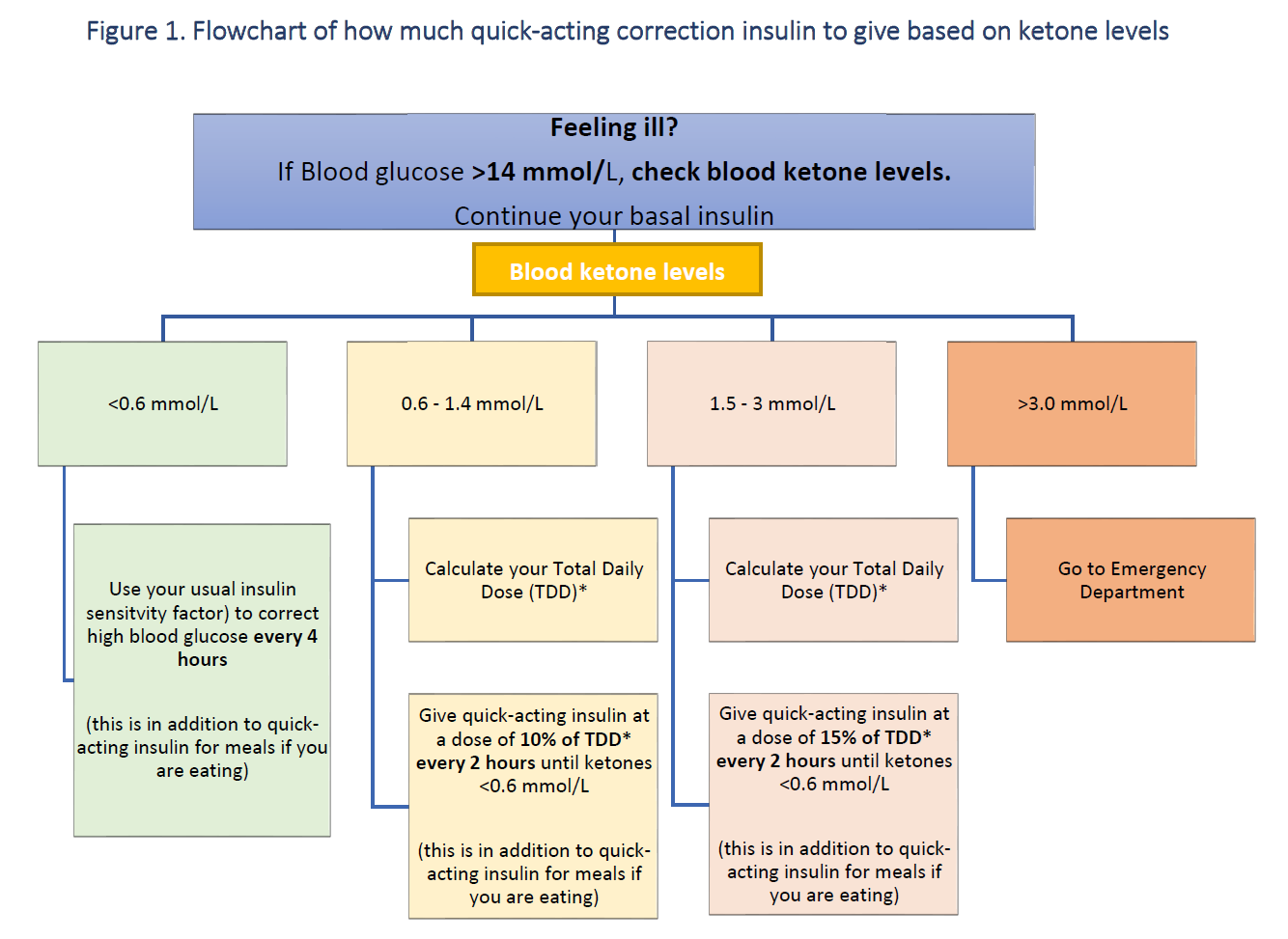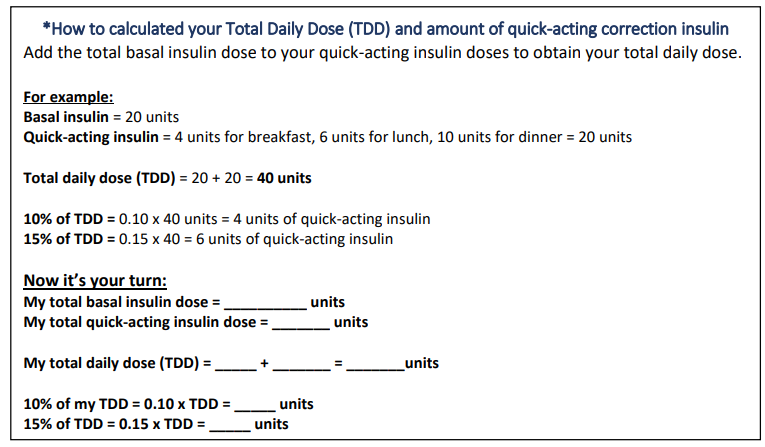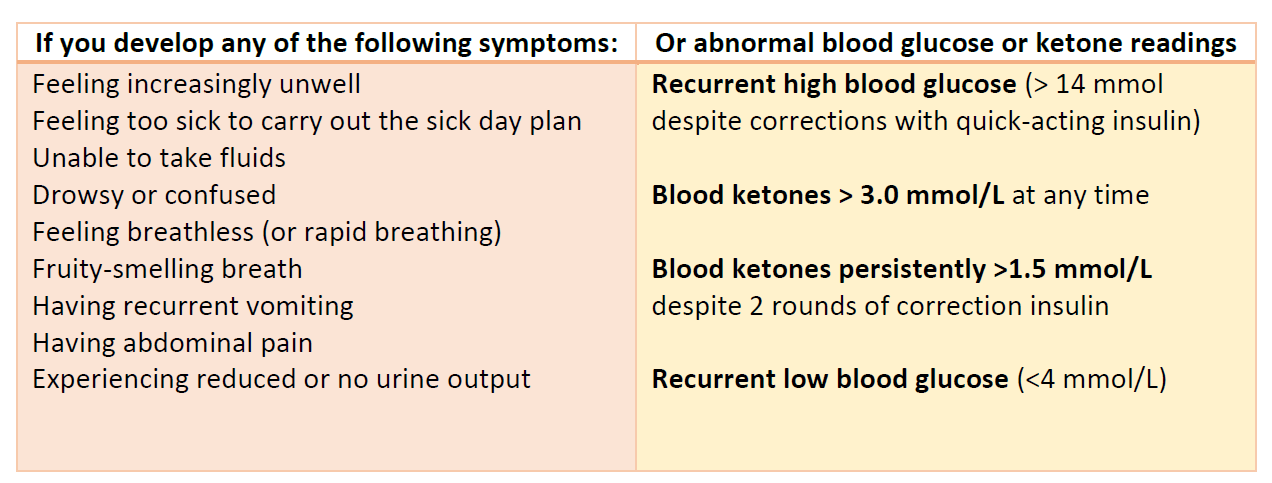Click to return to Resources for People with Type 1 Diabetes Main Page
"Sick days" are short periods of illness such as infections that last a few days (such as flu, viral fever and diarrhoea).
When unwell, your body releases stress hormones, which can raise blood glucose levels, even with minimal food intake. Additionally, ketone levels might increase.
A sick day plan is essential for managing glucose levels during these periods, in order to prevent diabetic ketoacidosis (DKA) and low blood glucose.
Signs and Symptoms of DKA
Thirst
Increased frequency of urination
Nausea, vomitting and/or stomach pain
Difficulty breathing
Extreme fatigue
Drowsiness




















